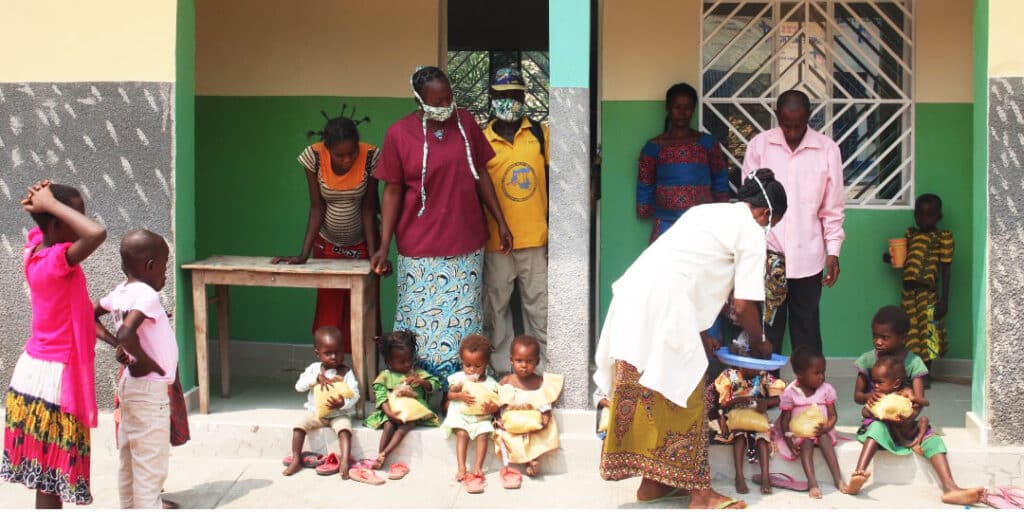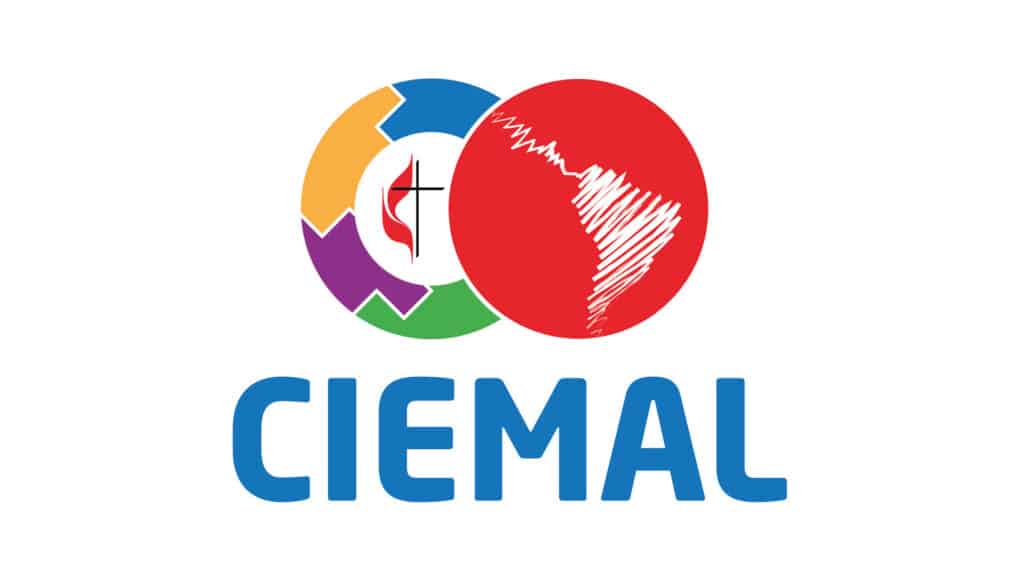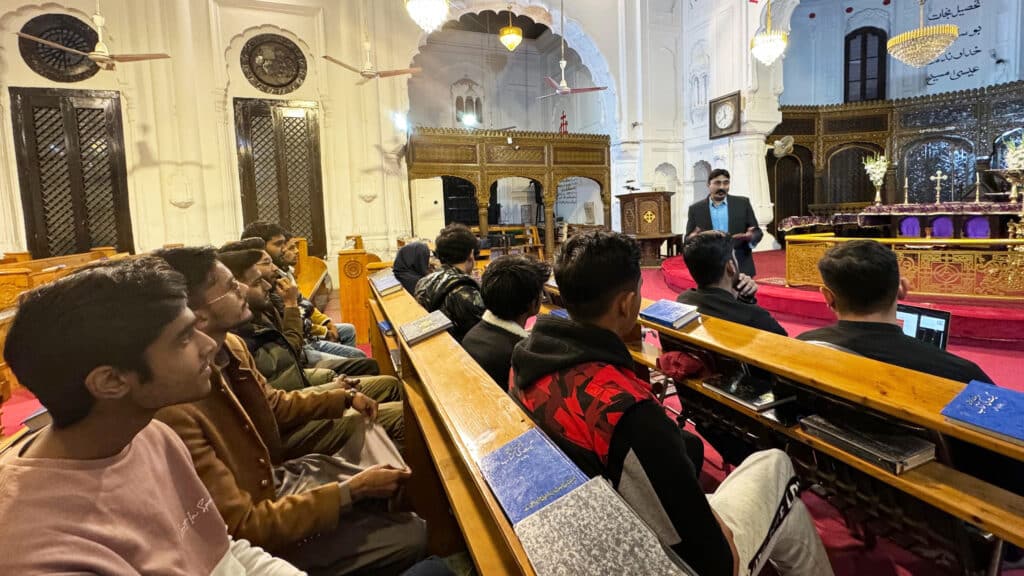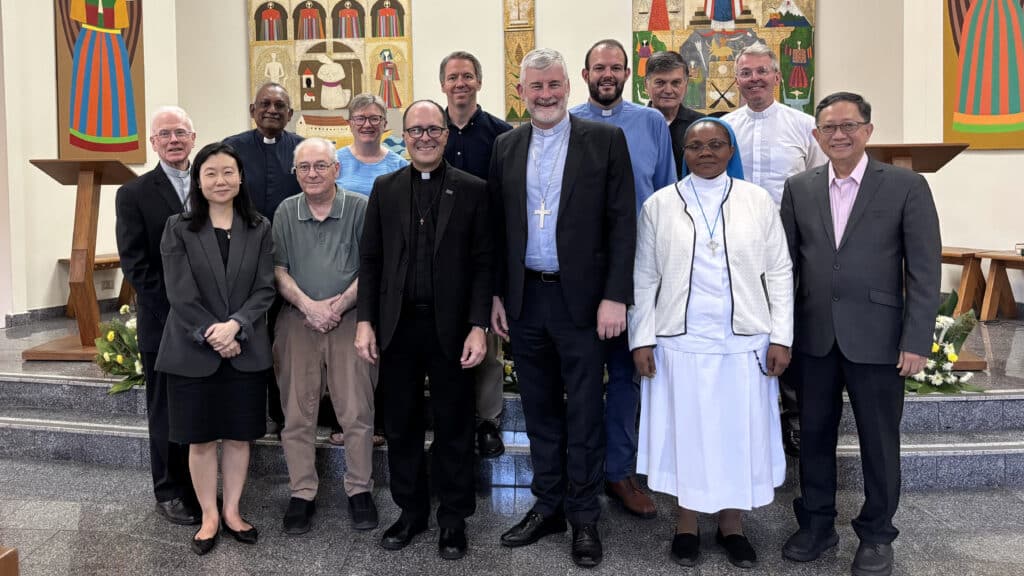ATLANTA — Mrs. Rose O. and her husband conceived three times in their marriage, but Rose lost every baby during her 5th or 6th month of pregnancy after suffering with a high fever. “When I announced to my husband that I had conceived for the fourth time,” she explained, “he sent me back to my family because, according to him, the problem was purely family genetics, and that my family would have to correct it. He said I had no need to visit a health center, as I had done that with the other three pregnancies and it didn’t help.”
In fact, Rose’s husband forbade her to go to a health center for any examination or treatment because he was sure her parents would have the knowledge to remedy the situation. At heart, he didn’t want to lose another child any more than she did, and they were both concerned and did not know how to proceed. Another loss would be devastating.
But while she was staying with her family, Rose was introduced to a group of nurses and community health workers from the United Methodist Diengenga Maternity Center who were visiting her parents’ community to reach young pregnant mothers like her. They were well aware of the common causes of miscarriage and the danger signs for pregnant women.
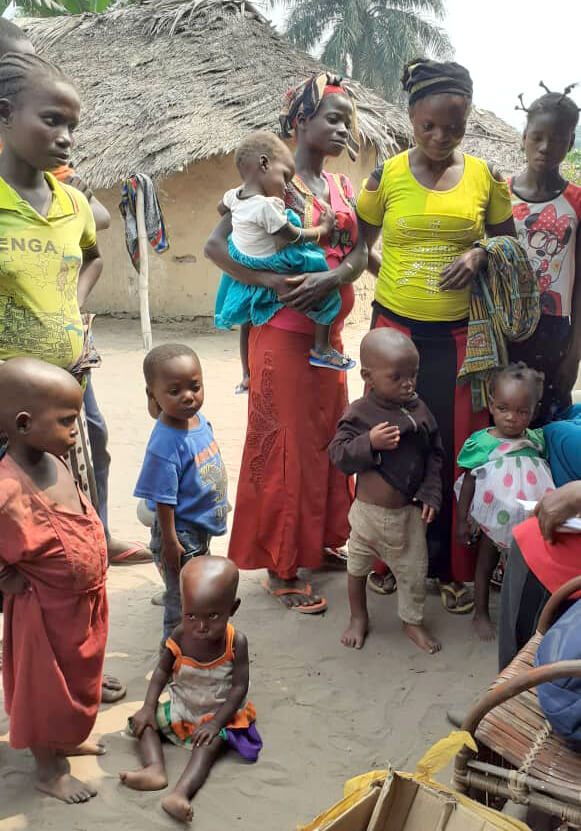
PHOTO: CENTRAL CONGO CONFERENCE HEALTH BOARD
“I took courage and decided to participate in their prenatal classes from that day on,” Rose said. “I went clandestinely to the Diengenga Health Center to start my prenatal sessions.”
Rose received medicine for malaria, antibiotics for infections and prenatal vitamins during her four appointments. She faithfully recorded the course of her pregnancy in her visit book and she experienced an uncomplicated delivery.
“My heart is filled with joy holding our new baby boy, delivered right here at the Diengenga Maternity Center. The problem was not genetics, as my husband believed,” said Rose. “When my family announced to my husband that I had given birth, my husband joined me directly at the Diengenga Health Center. He was overjoyed and even organized a big party for me.”
That beautiful, healthy baby delivered in the United Methodist Diengenga Maternity Center in the Democratic Republic of the Congo was one of the more than one million children reached through the United Methodist Abundant Health Initiative during the last four years.
Reaching 1 million children
Since the launch of the Abundant Health Initiative in 2017, Global Ministries has invested more than $26 million in 50 countries and mobilized millions more in partner in-kind contributions to reach 1 million children and adolescents with health interventions in thousands of communities across Asia, Africa, North America and Latin America. Global Ministries’ staff evaluates monthly data collected from United Methodist health centers across the globe, like the Diengenga Maternity Center. By understanding the “big picture” based on data carefully recorded by trained health professionals, the Global Health unit can design comprehensive interventions to fill the gaps in service that, left unchecked, lead to ill health and death for children and babies.
In 2017, Global Ministries joined the United Nations-sponsored Every Woman Every Child Initiative, which aimed to reach 16 million children by 2020. This initiative is supported by government, private sector, nonprofit and faith-based organizations committed to realizing healthier, more productive futures for children, their families and communities across the world.
And while statistical data collection and evaluation and participation in a United Nations initiative is impressive, it is the enduring trust and relationships forged by United Methodist health workers and volunteers, like the nurses and community health workers Rose met in Diengenga, that are the backbone that makes the whole initiative successful.
Denise Mondji, the Central Congo Mother, Newborn, Child Health (MNCH) coordinator for the Central Congo Conference of The United Methodist Church is a nurse-midwife. Her work is so well respected that, at the last Pan-African United Methodist Health meeting, she was selected as the best MNCH coordinator on the Abundant Health team.
She connects well with community leaders and health workers. They are currently working together on a nutritional rehabilitation program – screening, treating and feeding children back to health. They use a porridge made from grain together with fresh produce that parents can grow themselves or find in the market. At the same time, there is training in nutrition for everyone. These interventions are making a sustainable difference in children’s lives, although more is needed. Malnutrition is a major concern.
“I love, admire and respect these women,” Kathleen Griffith, interim Global Health team lead and program manager for MNCH with Global Ministries, said of the MNCH coordinators. “Getting the community involved is an important component. Another positive way of improving pregnant women’s access to services is though the establishment of mothers’ waiting homes at health facilities. In some cases, it may take a mother many hours of walking to reach a clinic. Pregnant women stay in the waiting home for several days or weeks before their due date. One of these was opened in Central Congo recently last year.”
Whatever it takes
Griffith described another ingenious way that a MNCH coordinator devised to fill a gap in in service for expectant mothers.
Joyce Madanga, another nurse-midwife, is the MNCH Coordinator for the United Methodist Health Board in Nigeria. Like Denise, she is trusted by the communities she serves. “A significant service gap was that many pregnant women were attending their first prenatal visit but very few were coming for their fourth. This concerned us,” Griffith said. “What was happening?”
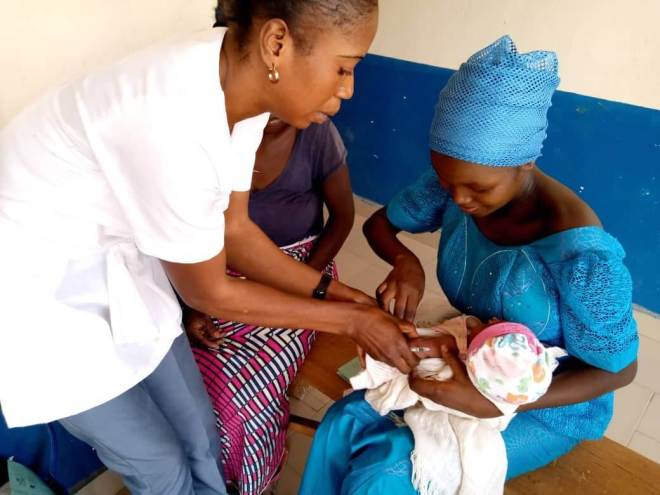
PHOTO: CENTRAL CONGO CONFERENCE HEALTH BOARD
The health centers are in rural areas where transportation is limited and expensive. Women cannot afford to make multiple prenatal visits. So, Madanga met with the local taxi union. They signed a Memorandum of Understanding agreeing to transport pregnant women, especially those with emergencies, to the health facilities, which would pay for the service. It became a win-win situation.
Reaching the goal of 1 million life-saving interventions to meet Abundant Health’s commitment to the “Every Woman, Every Child Initiative” was a rewarding milestone for Global Ministries and the United Methodist health boards, but babies like Rose’s little boy – they are the best reward for all involved. He is one in a million, precious in God’s sight, and he likely would not have been born without the intervention of The United Methodist Church health workers in Diengenga.
Gifts to the Abundant Health Initiative, Advance # 3021770, will make it possible to reach more children and their families this year.
Christie R. House is a consultant writer and editor with Global Ministries and UMCOR.
